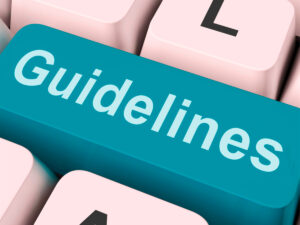// Mindfulness & Stress Reduction //
Since January 2020, when the World Health Organization determined the outbreak of Covid-19 to be a “public health emergency of international concern”, the levels of stress have been rising everywhere. The WHO, in conjunction with health authorities around the globe have recommended different measures to contain the pandemic. One of them is the implementation of lockdown.
Even when the measure is directed towards a positive outcome, being restricted to your home can have many undesirable effects. Physical and mental health can be negatively affected. The following simple guide will assist in reducing the level of stress while living in lockdown.
Create a routine. Mornings, afternoon and evenings as well as weekdays and weekends can easily become blurred while staying at home all day, every day. Stick to the same time to wake up and go to sleep, have a lunch break and dinner time that is consistent, determine the slot of time for work, exercise and relax and follow it through day after day. Have a different routine for weekends, with different activities, too.
Eat healthily. Choose nutritious food, limit the amount of sugars/carbohydrates and have three meals a day. Excessive amount of sugars in the blood contribute to an increment in the levels of stress. This situation is due to the body’s attempt to regulate that high level of sugar in the blood. The high peak of glucose (sugar) provokes a physiological response, releasing substances into the blood to bring down the sugar level but at the same time, the substances increase stress levels.
Reduce the intake of caffeine. This substance, found in coffee, tea, cola and energy drinks can produce anxiety, nervousness, insomnia and fatigue amongst other undesirable effects if the consumption is high.
Limit the consumption of alcohol. While alcohol may seem to help dealing with stress in the short term, in the long run it contributes to anxiety and depression, making stress management more difficult.
Embrace hobbies. These activities create a sense of fun, joy and freedom. The scientific research shows that a person that practices a hobby has a significant reduction in stress. Find the ones that can be fulfilled while at home.
Connect digitally. The isolation that lockdown imposes a threat against the sense of connectivity, so needed for a healthy mind. Technology can assist in finding that contact. At the same time, it is important to have “wise” distance from the internet too. Take breaks and when you connect make meaningful and positive contacts.
Go on a “news diet”. While essential information plays a big role in modulating fear and worries, it’s consumption should only be from a reliable source and once or twice a day but not more than that. Just get the facts, no rumours, speculations or spreading fake news.
Exercise. Physical activity increases the sense of wellbeing. It stimulates the production of the brain’s “feel-good” substances. Aerobic exercises also reduce the levels of body’s stress hormones. Thirty minutes of any type of physical exercise, every day, will bring about a significant improvement in your wellbeing. Practicing the above steps will assist you in reducing the level of stress that you perceive. While you cannot change the fact of the existence of a pandemic and the lockdown/quarantine regulations, it is in your power to modulate the impact of them on your wellbeing.




